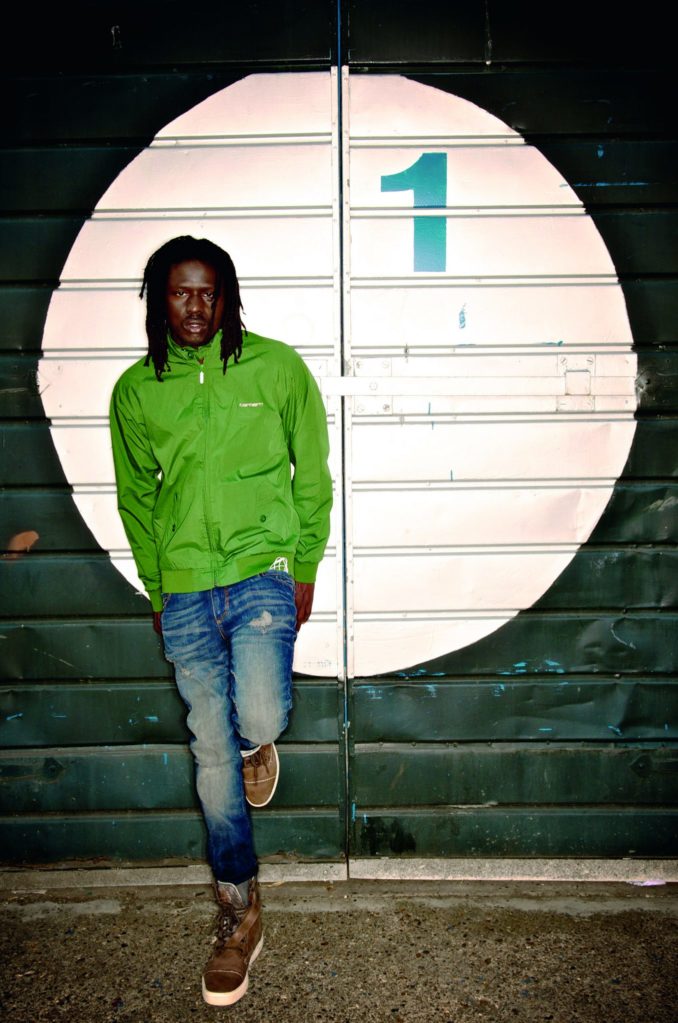Under the scorching African sun, in Sudan, a seven-year-old boy stands at attention. His fragile frame struggles to hold the AK47. The blank stare on his face betrays the atrocities he has lived through so far. At the command of his superior he runs into the bush. His mission is simple: no prisoners; kill them all. The stutter of the firing gun drowns out the screams. This is one of millions of boys who will never know what it feels like to play with Lego and toy trucks. With each passing day his hardening heart stifles a distant dream of a joyful childhood.
That boy, Emmanuel Jal, now in his thirties, has a made a career by telling his stories though music as a hip-hop artist. But the memories of death and destruction stick with him like the bullets in the chamber of an assault rifle.
“Everything I do today is mostly inspired by my past. I consider myself a soldier, but I fight with a microphone instead of an AK47. The battle that I’m fighting now is not because I am bitter; I am fighting to create change and I’m using dialogue and ideas instead of using force.”
In many ways Jal is still one of the lost children. He doesn’t know when or where he was born, but he thinks it was in the early 1980s. At the age of seven, after both his parents died, Jal went to a refugee camp in Ethiopia where he was recruited by the Sudan People’s Liberation Army (SPLA).
“Just as we approached the SPLA training facility, some members jumped out of the bush and started beating us… The next day we were shown how to attack towns, make weapons, make houses for ourselves and how to cook. The training was harsh and I thought that once we had finished I was going to kill my trainer.”
Loading...
When Jal was around 13 years old, the SPLA began to turn against each other. During this time, a group of them plotted their escape. The plan was to walk to a place called Waad. They thought it would take one month, but it took three. Only 16 of them survived.
Jal was taken in by a British aid worker who smuggled him into Nairobi. After her death, he was on his own again. The night terrors of his time in Sudan became worse and often left Jal on his knees. He may have left Sudan; but it never left him. Although he had dreams of being a pilot or a doctor, music was where he found peace.
In 2005, Jal released his first album Gua, meaning peace. The album focused on life as a child soldier, government corruption and the future of Africa. Although Jal’s music connected with many; it was too real for others.
“Music with a message behind it is very dangerous because you are educating the public; you are letting people know their rights… The system is scared of highly intelligent people who have more information about life because once they know, they can’t turn away.”
Jal’s music has seen him perform alongside the likes of Bob Geldof, the Soweto Gospel Choir and Josh Groban. In 2008, Jal performed in London for Nelson Mandela’s 90th birthday.
In 2008, a documentary on his life, War Child, received international praise. It was shown at various festivals including the Tribeca film festival where it won the Cadillac Audience Choice Award.
From child soldier to musician and activist, Jal has one mission. It’s highlighted in the lyrics to his song War Child: “I believe I’ve survived for a reason to tell my story to touch lives…”
Through his music he is doing just that. With the mic as his weapon, he fires words of hope for those who suffer in silence.
Loading...
